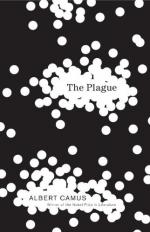|
This section contains 673 words (approx. 2 pages at 400 words per page) |

|
Absurdism
The term absurdism is applied to plays and novels that express the idea that there is no inherent value or meaning in the human condition. Absurdist writers reject traditional beliefs and values, including religious or metaphysical systems that locate truth, purpose, and meaning in transcendental concepts such as God. For the absurdist, the universe is irrational and unintelligible; it cannot satisfy the human need for order or fulfil human hopes and aspirations. Human beings are essentially alone in an indifferent universe and must make their way through their bleak, insignificant existence in the best way that they can. As Eugene Ionesco, a prominent French writer of absurd drama (quoted by M. H. Abrams in A Glossary of Literary Terms) put it: "Cut off from his religious, metaphysical, and transcendental roots, man is lost; all his actions become senseless, absurd, useless."
According to Abrams, absurdism has its roots...
|
This section contains 673 words (approx. 2 pages at 400 words per page) |

|




